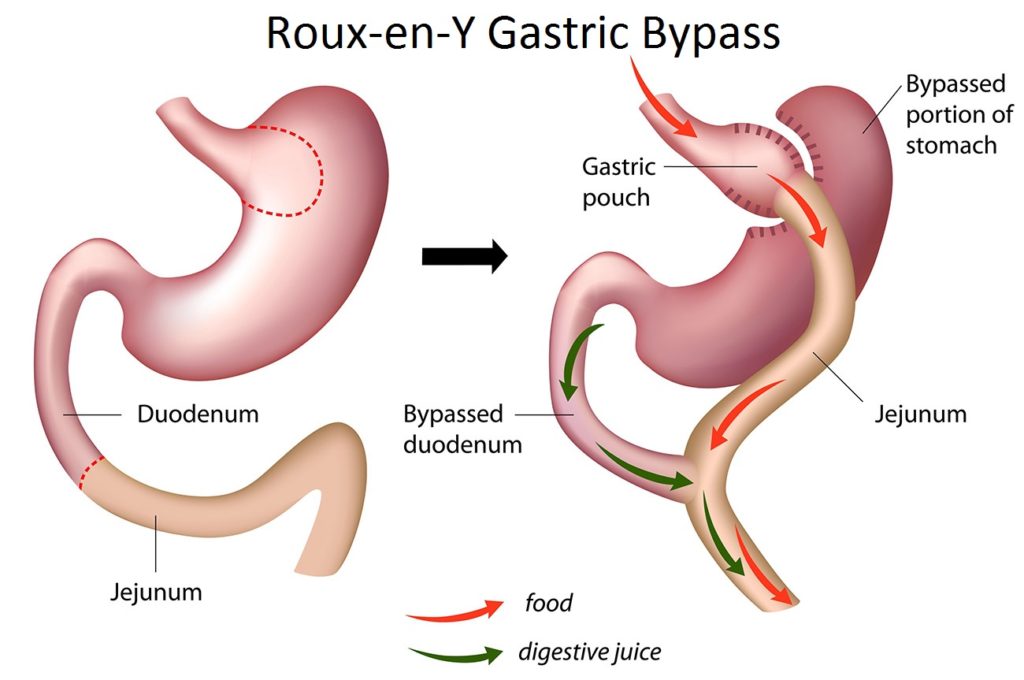Our Procedures
Roux-en-y gastric bypass
The Surgery:
The Roux-en-Y gastric bypass is a procedure where a small gastric pouch is formed by dividing the upper part of the stomach, and a loop of the small bowel is bypassed, around 1.5 metres, and connected to the lower part of the newly formed gastric pouch. The procedure is typically performed laparoscopically, through a number of small incisions on the abdomen, under a general anaesthetic. The surgery takes around 2 to 3 hours.
How does it cause weight loss?
The Roux-en-Y gastric bypass is a restrictive and malabsorptive procedure. By restricting the size of the stomach, the amount of food you can eat is limited. By bypassing a section of the small bowel, the amount of calories and nutrients your body can absorb is reduced. Additionally, the remnant of the bypassed bowel aids in the metabolic response, which can improve other health conditions, such as diabetes.
How much weight can I expect to lose?
Studies have found that at one year after surgery, patients have lost 62.5% of their excess weight. At five years after surgery, patients have lost 74.5% of their excess weight. These amounts are averages, and the amount of weight loss varies from individual to individual.
Sources: D. Azagur et al. “Surg.”, 2019; M. Golzarand et al. “Surg. Endos.”, 2017.
How long do I need to stay in hospital?
Typically 1 to 2 nights. You may require longer if you have a complex health history.
Is the procedure safe?
The Roux-en-Y gastric bypass has a low complication rate, however every surgery has risks.
Short term risks can include:
- Excessive bleeding
- Infection
- Blood clots
- Stomach leaks
Long term risks can include:
- Reflux
- Dumping syndrome with diarrhea, nausea and vomiting
- Ulcers
- Malnutrition
- Hernia
- Vomiting
Though it may seem daunting, the benefits of the surgery often outweigh the risks. Both risks and benefits should be assessed when considering surgery.
How much does the surgery cost?
Information on surgery costs can be found on the Our Costs page.






